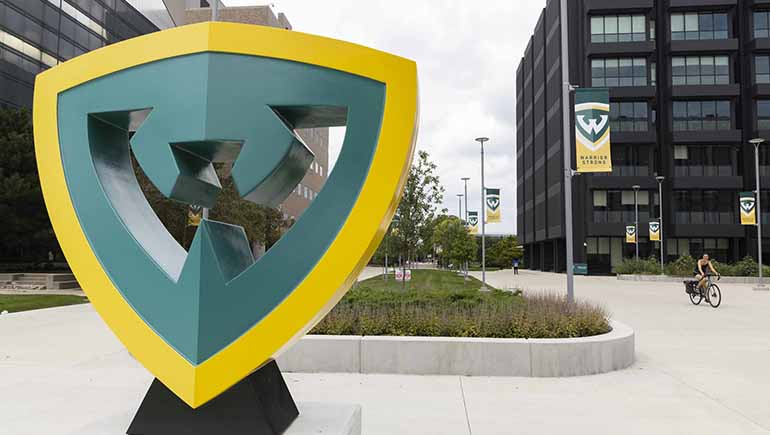
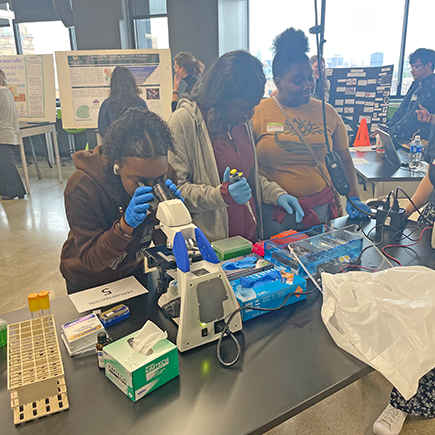
Science Policy Network-Detroit (SciPol-Detroit) was awarded an $1,800 microgrant from Research!America to host a “science fair with a twist” on Wayne State University’s campus at the end of April 2023.
That twist? Giving 35 high school students from the Detroit Public Schools Community District (DPSCD) the opportunity to venture to Wayne State’s main campus and the seventh floor of the STEM Innovation Learning Center to judge scientific research presentations by Wayne State undergraduate and graduate students and faculty. Presentation topics were variable and engaging, and included:
- Harnessing the power of algae: Innovative wastewater treatment through algal cultivation
- The brain talks: How we use EEG to measure brain activity
- Finding the key: Designing new COVID-19 medicine
- Stereoscopic vision: How seeing with two eyes lets us view the world in 3D
- Electrophoresis and criminology
- Myelin dysfunction and pain
- Addiction on the brain: How do we learn to crave drugs?
- Aid from repeat-binding and architectural maintenance proteins important in D. melanogaster dosage compensation
- Autonomous robotics
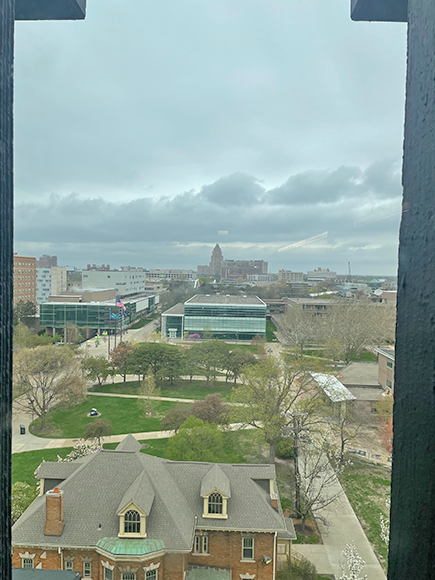
Situated with panoramic views of Detroit, student researchers set up their various interactive presentations. From Legos, virtual reality goggles and robots to Skittles and water, the presenters got creative with the mediums in which they conveyed their research.
“The challenge we put on our researchers today is to effectively communicate to a broad audience,” said Maggie Sneideman, communications director and graduate student liaison for SciPol-Detroit. “Many of our scientists have chosen to present interactive studies that draw people in rather than present with a heavy-science approach. Refraining from using too much jargon and communicating in a way the students can understand is the goal.”
Once the high school students — the judges — arrived, Hilary Marusak, Ph.D., SciPol-Detroit advisor and assistant professor in the Department of Psychiatry and Behavioral Neurosciences at Wayne State’s School of Medicine, said, “The power is in your hands. Take advantage of us and our knowledge, this an opportunity for all of us to learn and have fun!”
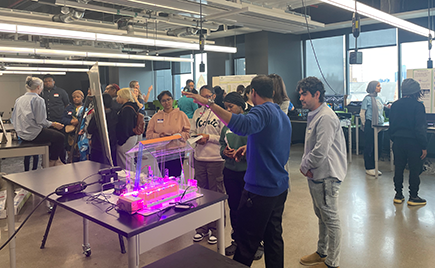
From there, the high school students travelled the room, judging each presenter immediately following the conclusion of their presentation. Presenters were scored based on interactivity, audience engagement and how well their research was digested.
As she watched her students engage and expand their minds, a teacher from the high school said the students love and appreciate the freedom to explore, and that this type of event is exactly what they need.
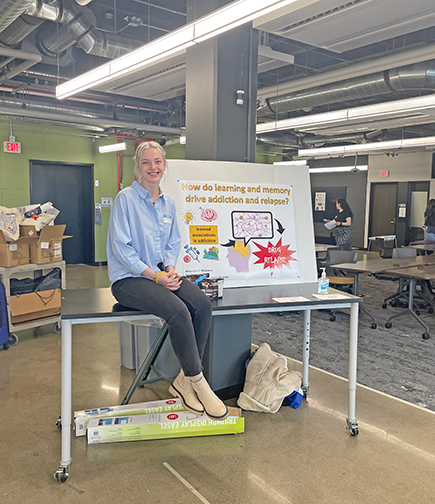
The room came to life as presenters and students took in the array of science on display. A high school senior, Mubashira, said her favorite part was all the new things she learned. She also loved how each presentation was different from the other.
“This really excites me,” Mubashira said. “It feels good to be here; I’m looking forward to attending and getting to know campus in the fall!”
Following poster presentations, all participants were invited to attend a round table luncheon, where WSU and DPSCD students interacted with faculty and lawmakers on state and local levels, including Lori Pile, Ph.D., a Wayne State professor and associate dean for undergraduate studies; state Sen. Stephanie Chang; and Sherry Gay-Dagnogo, a DPSCD School Board member and former state representative. The luncheon also included an awards ceremony for the presenters; autonomous robots took home the gold, although all presenters felt like winners, as did the students.
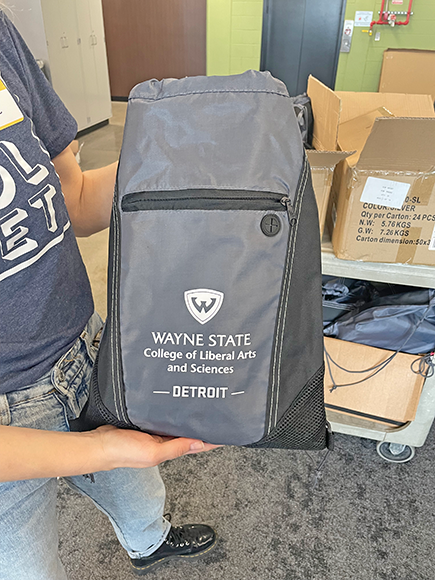
“It’s important for us to connect with local high schoolers, especially those who are interested in science,” said Sneideman. “To show them the university and what kind of science is being done and what’s possible for their future.”
By Katheryn Kutil
